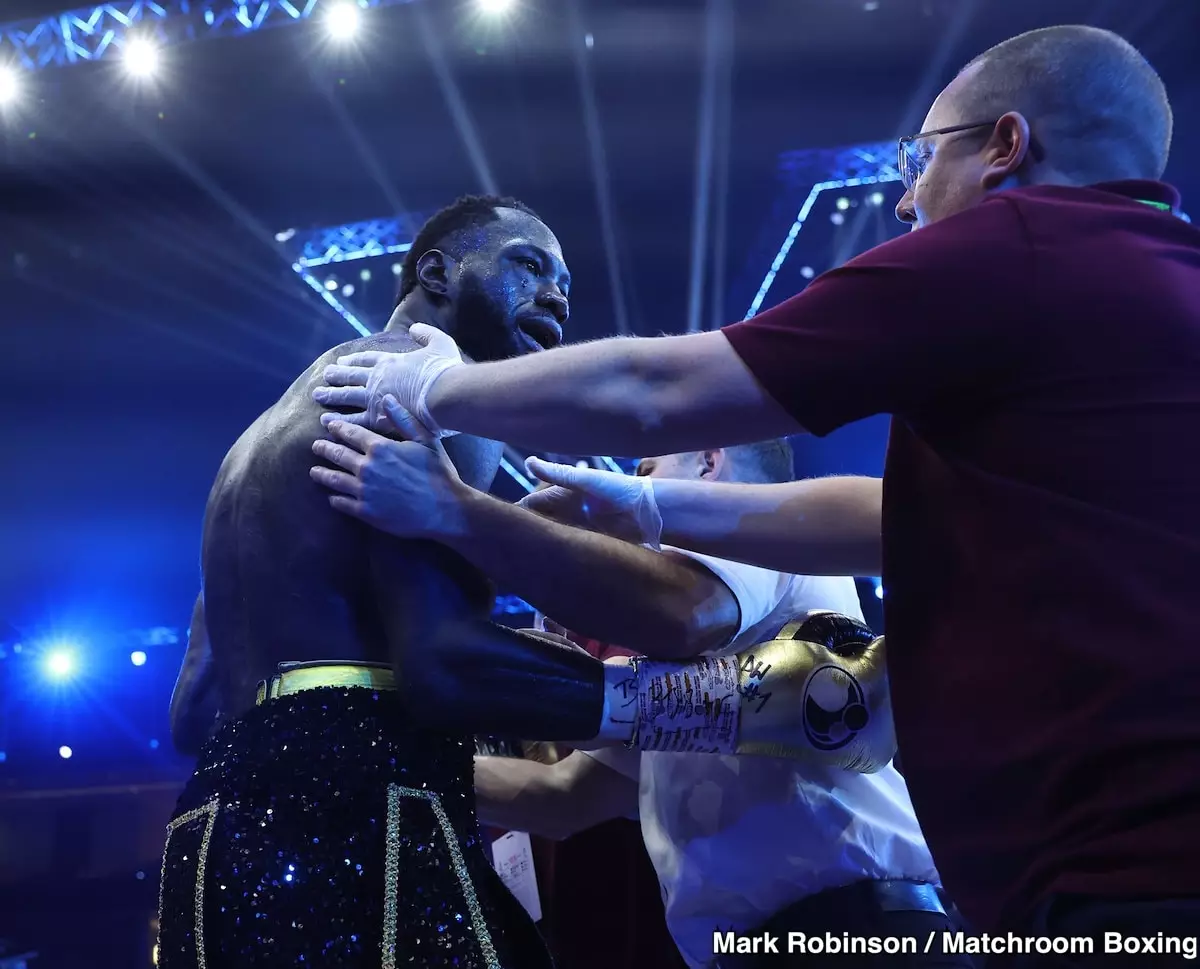The buzz surrounding former heavyweight champion Deontay Wilder’s return to the boxing ring is palpable, but one must question the context and implications of this comeback fight against Tyrrell Herndon on June 27. Notably, this bout will take place in Wichita, Kansas—far removed from the glamorous arenas of Las Vegas or Madison Square Garden that typically host heavyweight showdowns. Choosing the Midwest for this matchup, particularly following a string of disappointing performances, raises eyebrows. It seems Wilder’s career has reached a point where his allure has dimmed; he must now battle in less-than-ideal venues against opponents whose credentials barely command respect.
Wilder’s record—43 wins, 4 losses, and 1 draw—might suggest a storied career, particularly punctuated by stunning knockout power, but the reality is far grimmer. His recent trajectory has been characterized by two significant setbacks against respectable fighters, Joseph Parker and Zhilei Zhang, but these fights revealed Wilder’s vulnerabilities more than they showcased his strengths. These were not contests; they were lopsided conclusions that diminished his reputation as one of boxing’s most feared punchers.
A Comeback or a Final Stroll?
The promotional language surrounding Wilder’s return reads like a script from a bygone era, filled with optimism and hope. Promoters Nelson Lopez and Joshua Chasse frame this bout as “Wilder’s legacy reloaded,” evoking a narrative reminiscent of athletes who bounce back to reclaim their former glory. However, let’s dissect this claim. A significant part of Wilder’s legacy was cemented during his three-fight trilogy with Tyson Fury, which, while thrilling, ends without a single victory for the Alabama native (0-2-1). Instead, these contests reinforced the narrative of his decline. His most recent defeat, where he was knocked out in Round 11, left indelible marks on both his psyche and public perception.
So, what are the stakes of the upcoming fight in Kansas? Yes, Wilder may possess enough power to finish Herndon within a round, and this possibility creates a tantalizing subplot. However, it is important to recognize that even a quick victory would not provide insight into Wilder’s future trajectory. This fight feels less like a comeback and more like a cautious attempt to extend his career—a soft landing rather than a bold resurgence.
Who is Tyrrell Herndon?
Let’s consider Wilder’s opposition. Tyrrell Herndon, with a professional record of 24-5 and 15 knockouts, is hardly a household name. Ranked among the ranks of journeyman fighters, Herndon’s biggest claim to fame appears to be enduring bouts against opponents far beyond his skill level, which ultimately leads to losses. He barely secured a split decision victory during his most recent outing and was thoroughly dismantled by an Olympian earlier, demonstrating that Herndon himself is hardly at the peak of his powers. The match lacks the intrigue typically associated with heavyweight showdowns, providing merely a backdrop for Wilder’s speculation surrounding his future.
If Wilder emerges victorious in a fashion that fans expect, one must ask: what does it contribute to his legacy? If anything, such a win serves as a mere formality—a necessity in maintaining relevance rather than a compelling piece to reconstruct his narrative in the heavyweight division.
Wilder’s Diminished Aura
The once-dominant aura surrounding Deontay Wilder has faded considerably, replaced by a sense of skepticism about his future in the sport. The sheer power of his punches remains; yet, the fear that once gripped opponents appears to be absent. The ugly truth is that one night in Kansas, regardless of how he performs, may not restore Wilder’s mystique, nor will it erase the memories of recent disappointments.
The boxing community and fans must confront a sobering reality: this match is less about reclaiming a championship title and more about Wilder’s ability to stay relevant within the sport that has defined him. His reign as a heavyweight champion has essentially morphed into a quest for self-validation. The word “legacy,” when discussed in relation to this bout, feels painfully misplaced—a relic of what once was rather than an accurate representation of what’s to follow. As he prepares to step into the ring, it is essential for Wilder—and for fans—to accept this truth: it may not be a comeback at all, but perhaps a mere extension of a career that has started its slow, inevitable decline.


Leave a Reply